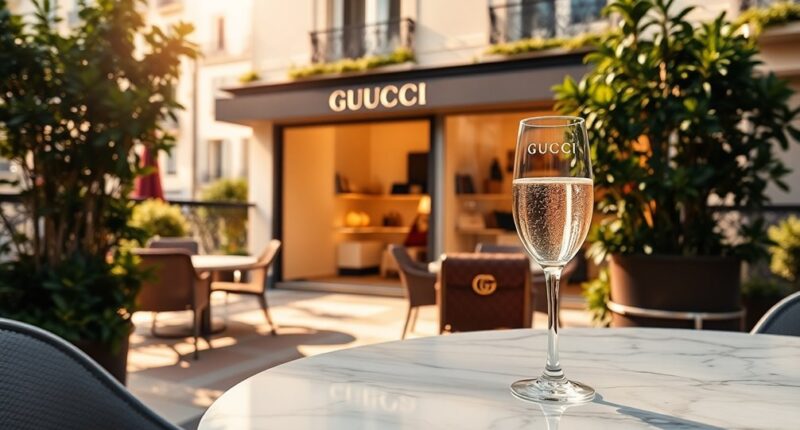Gucci's recent decision to sell prime properties in Paris, including the Hôtel de Nocé, raises intriguing questions about the luxury market. By keeping a 40% stake, they're not just offloading assets but strategically positioning themselves to attract affluent customers. This approach could redefine their brand visibility and customer engagement in key retail markets. What might this mean for the future of luxury retail and the way brands connect with high-end consumers?

As Kering navigates financial challenges, it's selling a majority stake in three prime Paris properties, including the iconic Hôtel de Nocé on Place Vendôme, for €837 million. By making this strategic move, Kering aims to secure key locations while retaining financial flexibility. This decision is underscored by the importance of data analytics in understanding market trends and consumer behavior.
You'll notice that Kering holds onto a 40% stake in these properties, ensuring it maintains a level of control over its luxury brand presence in one of the world's most coveted retail markets. The properties involved aren't just any buildings; they house flagship stores for luxury brands like Valentino and Balenciaga.
This sale is driven by the necessity to bolster Kering's market positioning amid declining sales at Gucci, one of its most famous brands. By selling a majority stake while keeping a significant interest in the properties, Kering ensures that its brands can continue to occupy these prime locations, which are critical for attracting high-end customers looking for premium shopping experiences. This transaction is expected to be finalized in the first quarter of 2025, allowing Kering to adapt its strategy promptly.
Kering's decision reflects a broader financial strategy aimed at unlocking cash flow while maintaining operational control. This approach allows Kering to navigate a challenging luxury market environment without losing sight of its long-term vision.
With a market valuation of €27 billion, Kering's focus on high-value real estate underscores its commitment to luxury retail, even in tough times. In addition to managing its physical assets, Kering has turned to digital and marketing strategies to engage with customers more effectively.
You might've noticed Gucci's enhanced omnichannel approach, integrating both digital and in-store experiences to create a seamless shopping journey. This includes a significant investment in digital communication, which now comprises 40% of Kering's marketing budget. By ramping up social media engagement and leveraging influencer collaborations, Gucci is working to capture the attention of younger audiences who are increasingly driving luxury consumption.
Despite the challenges Kering faces in reviving Gucci's sales, it remains proactive in exploring new growth avenues. The partnership with Ardian, resulting from the property sale, opens doors to further investment opportunities.
Kering is also looking to strengthen its luxury presence in other key markets, having recently acquired properties in Milan and New York.









